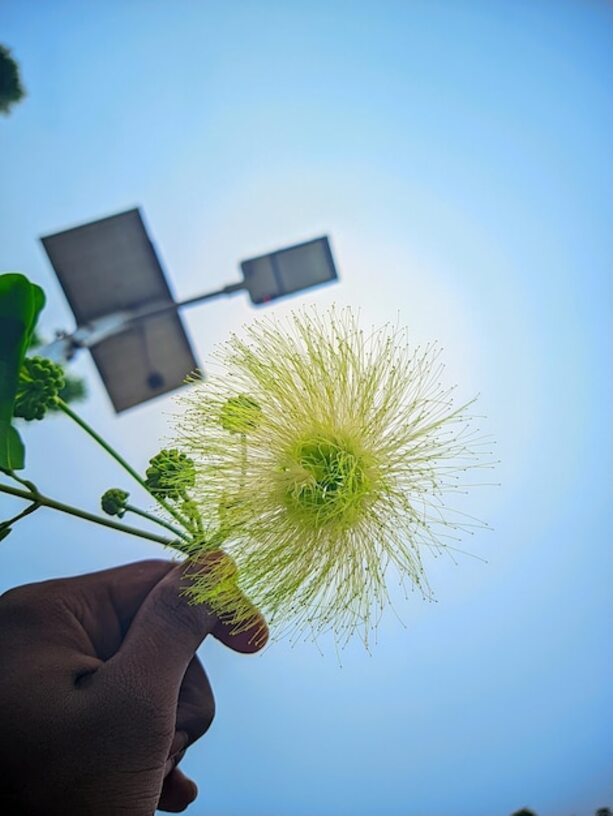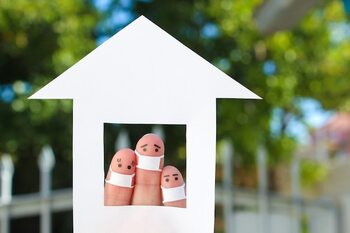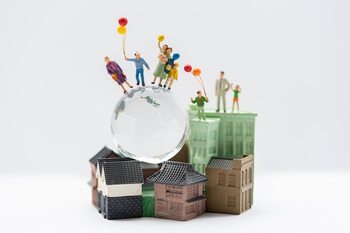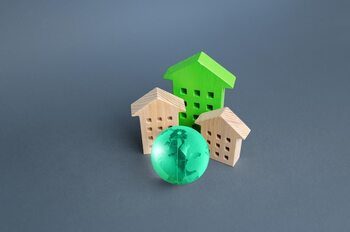The impact of sustainability on your home's value

The impact of sustainability on the value of your home is a crucial topic for those looking to maximize their real estate investment. In Costa Rica, where natural beauty and respect for the environment are fundamental pillars, adopting sustainable practices not only enhances quality of life but can also significantly increase the value of your property. Discover how integrating eco-friendly solutions can transform your home into a more valuable and desirable asset in the market.
The connection between sustainability and added value: Why does it matter?
The connection between sustainability and added value is increasingly evident in the real estate market. Properties that incorporate eco-friendly practices, such as renewable energy systems, energy-efficient installations, and sustainable building materials, are not only more attractive to environmentally conscious buyers but also tend to perform better in terms of long-term value. This is because sustainable homes tend to have lower operating costs and a smaller environmental impact, making them more desirable for those seeking a home that reflects their personal and stylistic values.
Additionally, the growing awareness of climate change and the importance of environmental conservation has led many buyers to prioritize sustainability when purchasing a property. This means that homes with eco-certifications or those built with responsible practices are experiencing increased demand. Investing in sustainable improvements not only benefits the planet but can also result in a significant increase in the resale value of your home, making this connection between sustainability and appreciation vital for those interested in maximizing their real estate investment.
2. Sustainable features that increase the value of a property.
Sustainable features in a property not only contribute to environmental preservation but also play a crucial role in increasing its value. Elements such as solar panels, rainwater harvesting systems, and eco-friendly building materials not only reduce operating costs but also provide buyers with a sense of social and environmental responsibility. These improvements are not only attractive to those who value sustainability but can also make a property stand out in a competitive market. The more efficient and environmentally friendly a home is, the greater its appeal to potential buyers.
Moreover, green certifications, such as LEED or BREEAM, can further increase the value of a property by demonstrating a tangible commitment to sustainable practices. These accreditations assess various aspects of design and construction, from energy efficiency to responsible water use and indoor air quality. Buyers are increasingly interested in properties that offer these certifications, as they ensure not only a lower environmental impact but also long-term savings on utility bills. Therefore, investing in sustainable features can translate into a significant return when you decide to sell your home.
3. Renewable energy: a boost towards a more valuable home.
The incorporation of renewable energy in the home not only represents a commitment to the environment, but also translates into economic benefits and an increase in property value. Technologies such as solar panels, wind energy systems, and solar water heaters significantly reduce utility bills. By adopting these solutions, homeowners not only decrease their carbon footprint but can also attract potential buyers who value energy efficiency and sustainability. A home equipped with renewable energy is perceived as a smart investment, which can result in greater long-term appreciation.
By opting for clean energy, homeowners contribute to creating a healthier environment. The reduction of toxic emissions and dependence on fossil fuels improves air quality and promotes a healthier lifestyle for all household inhabitants. This ecological approach is not only appealing to those looking to buy properties in areas where sustainability is valued, but it also positions the property as an active participant in the fight against climate change. In summary, integrating renewable energy transforms your home into a modern and efficient sanctuary that resonates positively in both economic and environmental terms.
4. Green spaces: the importance of sustainable landscape design.
Sustainable landscape design is one of the keys to creating green spaces that not only beautify the environment but also support biodiversity and promote a healthier lifestyle. By incorporating native plants and efficient irrigation systems, water consumption is reduced and the need for pesticides and chemical fertilizers is minimized. These practices not only conserve natural resources but also create a more favorable microclimate within the home, which can translate into lower energy costs and a more pleasant environment for its inhabitants. Investing in sustainable landscaping transforms your property into a welcoming space that respects the surroundings.
Well-designed green spaces significantly enhance the visual and functional appeal of a property. Sustainable gardens that include areas for recreation, urban farms, or relaxation zones promote a direct connection with nature, which is highly valued by potential buyers. The presence of vegetation not only improves air quality by filtering pollutants but also provides natural shade and contributes to the thermal regulation of the home. In summary, integrating sustainable landscaping elements not only benefits the environment but also increases the commercial value of your home by making it more attractive in an increasingly sustainability-conscious market.
5. Energy efficiency: saving money while increasing value.
Energy efficiency has become a determining factor for homeowners looking to increase the value of their homes. Investing in solutions like solar panels, high-quality insulation, and energy-efficient appliances not only reduces monthly bills but also attracts environmentally conscious buyers. In an increasingly competitive market, having features that promote sustainability can make your property stand out from the crowd, facilitating a quicker sale at a higher price.
In addition to the immediate economic benefits, improving energy efficiency also contributes to the long-term appreciation of the property. Homes with energy certifications or green technologies are perceived as more attractive options by potential buyers, who value both the savings in operating costs and the commitment to responsible practices. In this way, by implementing sustainable improvements, you are not only saving money month to month but also strategically investing in the future of your home.
6. Environmental regulations and certifications that enhance your property.
Environmental regulations and certifications play an essential role in the valuation of a property, especially in a country like Costa Rica, where sustainability is highly valued. Local regulations that promote efficient resource use and reduce the ecological footprint can significantly influence the appeal of a property to environmentally conscious buyers. Complying with these regulations not only ensures that your home aligns with best sustainable practices but may also facilitate access to tax incentives or long-term economic benefits.
Additionally, obtaining recognized environmental certifications, such as the Ecologist Seal from the Ministry of the Environment or the LEED (Leadership in Energy and Environmental Design) certification, can further elevate your home's profile in the real estate market. These distinctions not only demonstrate a commitment to sustainability but also provide potential buyers with confidence in the building quality and low environmental impact of the property. In an environment where more and more people are looking for homes that reflect their ecological values, having these accreditations can be a decisive factor when finalizing a sale or lease.
7. The future of the real estate market in Costa Rica: sustainable trends to consider.
The future of the real estate market in Costa Rica is shaping up to be marked by a growing focus on sustainability. Current buyers, increasingly aware of their environmental impact, are seeking properties that not only offer comfort and functionality but also integrate eco-friendly practices. Trends such as the construction of homes with recycled materials, the use of renewable energies, and rainwater collection systems are gaining ground, making these features decisive factors in increasing a property's value. Additionally, government regulations are aligning with this trend, encouraging developers to adopt methods that minimize the ecological footprint.
The integration of sustainable solutions not only responds to market demand; it also represents a smart investment for the future. As awareness of climate change and its effects continues to grow, properties that incorporate green elements will be better positioned against economic fluctuations and changes in consumer preferences. In this context, those owners and investors who take a proactive approach to sustainability will find unique opportunities to maximize the long-term value of their homes. Thus, being a pioneer in this movement is not only beneficial for the environment, but also ensures continuous appreciation in an increasingly competitive market.



